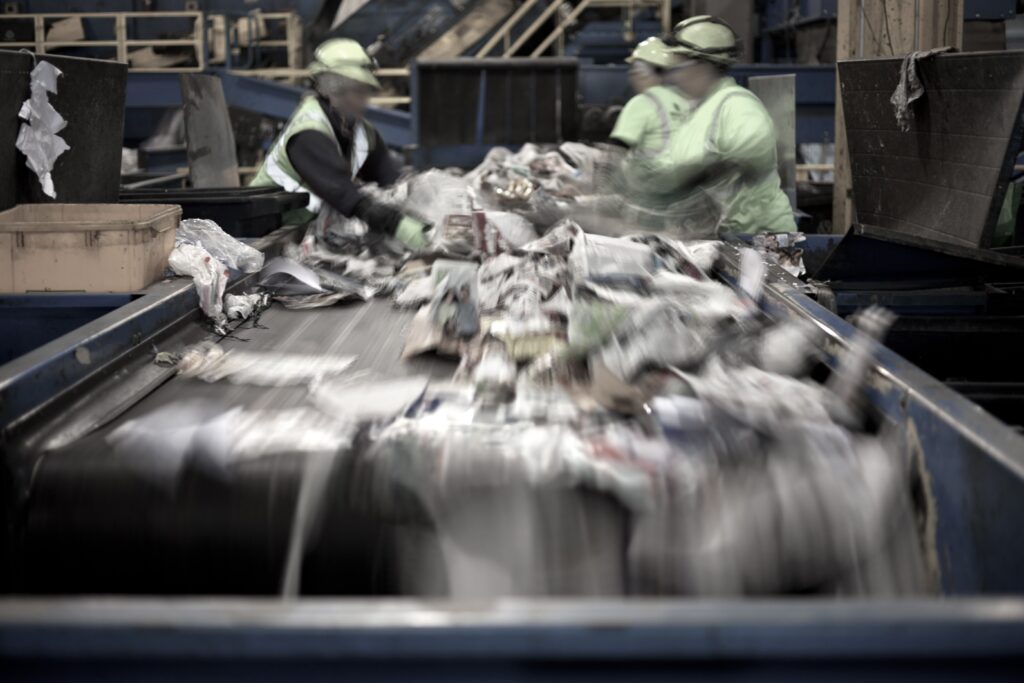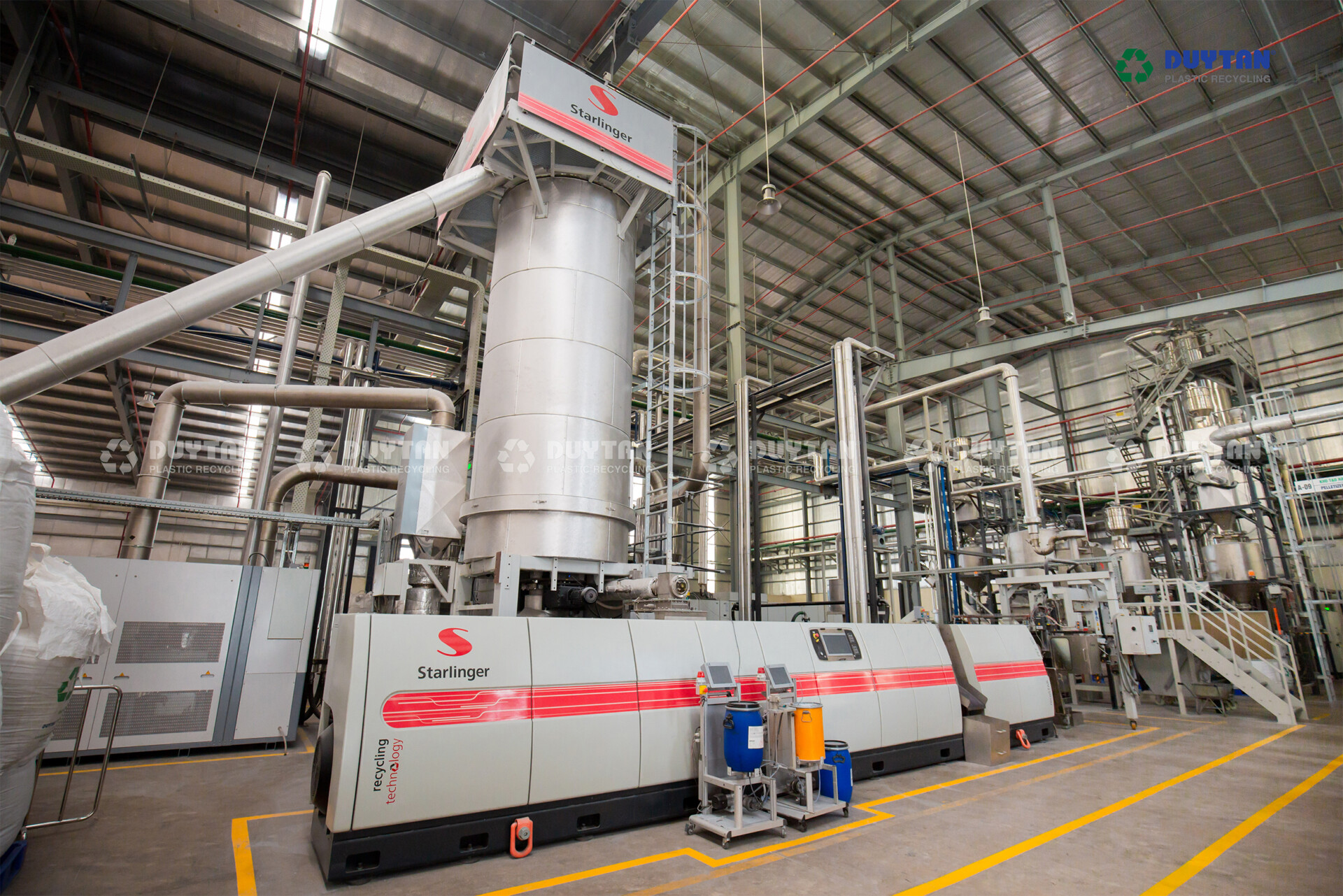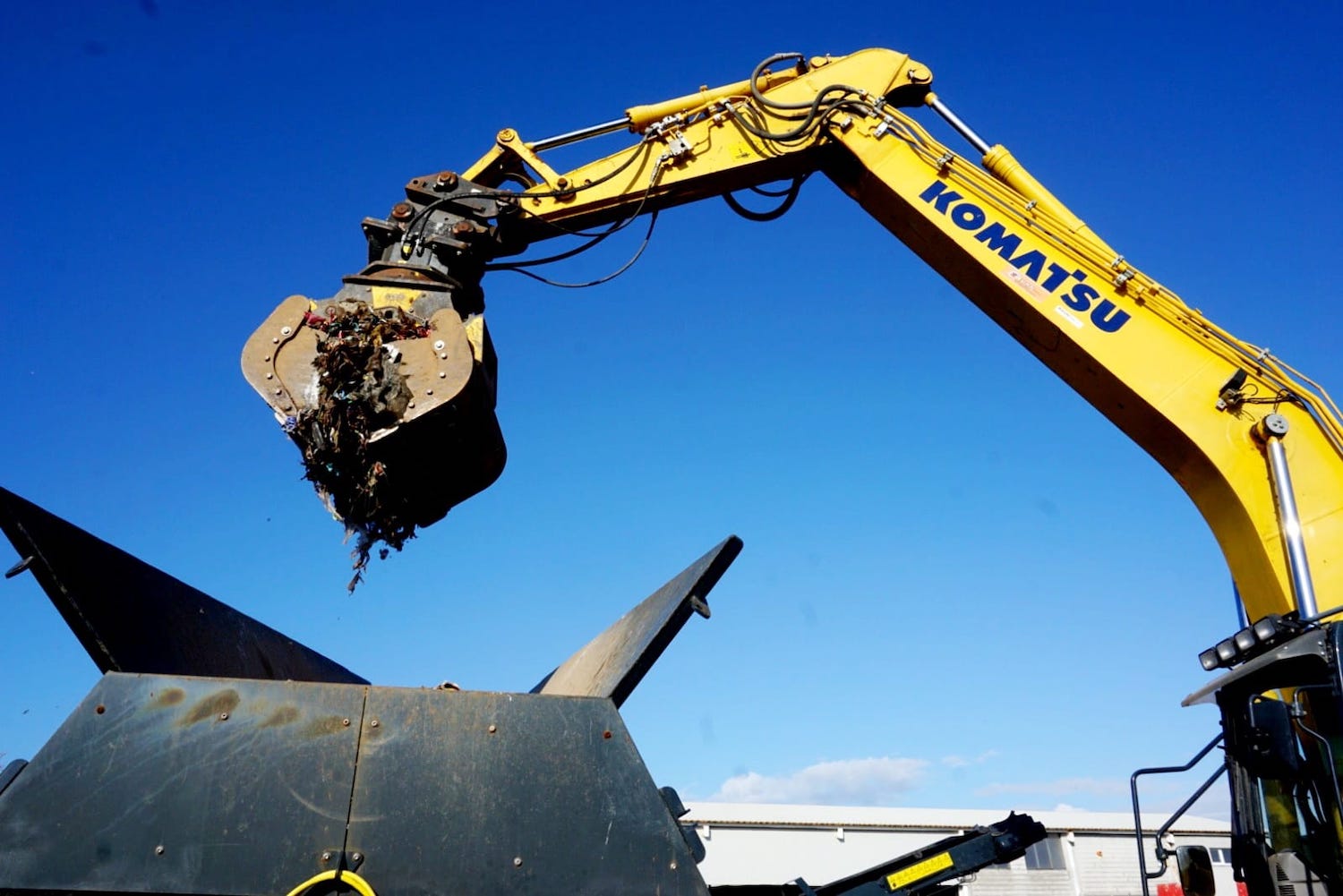AMR represents a significant advancement in the circularity of plastics, bridging the gap between the vast amount of valuable plastic waste and the increasing demand for high-quality recycled materials.
Examples of Advanced Mechanical Recycling (AMR)
Advanced mechanical recycling encompasses a range of sophisticated techniques and technologies aimed at transforming diverse plastic waste streams, including mixed waste, into premium recycled plastic content.
These advancements include:
- Presorting: Utilizing AI-assisted systems to categorize plastic waste based on polymer type, colors, and other properties.
- Shredding: Breaking plastic waste into uniform shapes and sizes facilitates further processing.
- Hot Washing: Employing intensive washing techniques to remove organic residues, adhesives, inks, and other contaminants.
- Enhanced Flake Sorting: Using optical sensor technology to separate unwanted objects and colors from plastic flakes meticulously.
- Deodorization: Implementing methods to eliminate unpleasant odors from recycled plastic materials.
- Enhanced Extrusion: Improving the extrusion process to enhance the overall quality of recycled plastic pellets.
- Super-Cleaning: Utilizing advanced cleaning methodologies to ensure the purity of recycled plastic content.
How Advanced Mechanical Recycling Works
Advanced mechanical recycling represents a paradigm shift in waste management. It revolutionizes the conversion of household plastic waste into premium recycled plastic content. By integrating cutting-edge technologies and refining existing processes, AMR maximizes the efficiency and effectiveness of plastic recycling operations.
Mechanical Recycling: Driving the Circular Economy
Mechanical recycling is a cornerstone of the circular economy, offering a sustainable solution for managing various material classes, including plastics, metals, and lithium-ion batteries. This approach involves collecting, sorting, shredding, melting, and transforming end-of-life materials into secondary raw materials suitable for new applications. By manufacturing products from recycled materials, the circular economy model prolongs the lifespan of resources and minimizes environmental impact.
The Role of Chemical Recycling
While mechanical recycling remains a preferred solution for plastic waste management, chemical recycling complements this approach by offering additional avenues for resource recovery. Chemical recycling processes convert plastic waste into chemical building blocks or fuels, further diversifying the recycling landscape and enhancing resource efficiency.
Conclusion
Advanced Mechanical Recycling represents a pivotal advancement in waste management practices, particularly in plastics. By harnessing innovative technologies and refining traditional processes, AMR transforms diverse plastic waste streams into high-quality recycled materials.
As the circular economy continues gaining momentum, mechanical recycling is a fundamental pillar, driving sustainability and resource efficiency across industries. Through ongoing research, development, and investment, the future of recycling promises further innovation and progress towards a more sustainable, circular future.

























